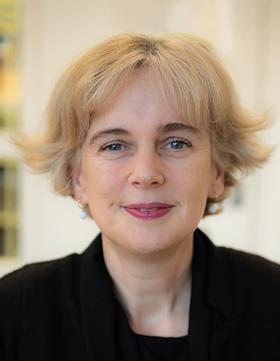Stella Jane Thomas (1906-1974) was the primary West African girl to be known as to the Bar of England and Wales on the Center Temple. Referred to as on 10 Could 1933, by 1935 she had returned to West Africa and registered as a barrister on the supreme courts of each Sierra Leone (October 1935) and Nigeria (November 1935), thus enshrining her in historical past as the primary girl lawyer in West Africa. Practising in her brother’s chambers till 1943, she then turned the primary girl in West Africa to just accept a (quasi-) judicial appointment as a Justice of the Peace.
Thomas was born in Lagos, Nigeria, of Sierra Leonean descent. She was one of many Yoruba folks, an African diaspora who reached from Nigeria to Benin. Her mother and father had been Josetta Mary Thomas and Peter Claudius Thomas, a profitable businessman and trailblazer. He was the primary African president of the Lagos Chamber of Commerce and the primary African to have European workers.

Schooled in Freetown, Sierra Leone, Thomas travelled to England in 1926, behaviour described as ‘uncommon’: an single black girl travelling to England as a scholar. Many texts describe her as having studied on the College of Oxford and as being a member of its West African College students Union. Nonetheless, the Bodleian Library doesn’t report Thomas having matriculated of their indices as much as and together with 1932; additional, her 1933 Center Temple ‘Name Kind’ leaves her college training clean. Her Center Temple admission utility describes her as having handed the Cambridge Colleges Certificates. Nonetheless, there are various inconsistencies within the quite a few, however principally one-paragraph, information of her life in different histories.
On 12 December 1929, she was admitted to the Center Temple. Having handed her closing bar exams in December 1932, she was later known as to the bar alongside her elder brother Stephen, who would go on to change into the primary chief justice of the mid-western area in Nigeria. One other brother, Emanuel, was additionally a member of Center Temple, however he was by no means known as. Emanuel later turned the primary RAF-commissioned African; he flew for Britain within the second world battle.
Thomas was one of many founding members of the League of Colored Peoples, a civil rights organisation open to all races. The league advocated for the tip of the color bar. It had 12 centres, a journal known as The Keys, organised social actions and lobbied for change.
Thomas carried out in a play on the YMCA, ‘At What a Value’, by Una Marson, the primary black girl to be employed by the BBC. The Guardian commented on Thomas’s sheer magnificence as she walked throughout the stage in an orange gown. Whereas the play did not earn a living, it introduced dwelling to the British public that Africans may handle their very own affairs.
In 1934, Thomas overtly challenged historian Dame Margery Perham at a 1934 lecture on the Royal Society of Arts. The one African girl to take part within the dialogue, Thomas argued that Africans must be concerned in and consulted on the method of looking for to resolve the issue of Africa. The previous governor common of Nigeria, Lord Lugard, was within the viewers, and Thomas addressed him on to criticise the ‘twin mandate coverage’, stating that it made puppets out of conventional rulers and chiefs.
By 1935 Thomas had returned to Lagos, becoming a member of her brother Stephen’s chambers.
She was made a Justice of the Peace in 1942 or 1943. There’s proof of her magistracy: she sentenced Alice Ewo to a wonderful of £5 and 10 shillings, or one month’s imprisonment with onerous labour, for promoting six cigarette sticks for 6p as an alternative of the fastened worth of 5 cigarette sticks for 4p. In November 1943 she married a fellow Nigerian barrister, Richard B Marke, additionally of Sierra Leonean descent and with whom she had studied. Thereafter referred to as ‘Mrs Marke’, her marriage and occupation gave her an influential standing in public life.
We all know nothing of Thomas’s life after her marriage. Her trailblazing would have been lonely as a result of change was gradual. It was not till 1947 that Mrs Renner (Modupe Alakija) turned the second feminine lawyer in Nigeria. From 1949 to 1960 one other 18 ladies would be part of them, in contrast with greater than 300 male legal professionals. Modupe Omo-Eboh, known as to the Bar at Lincoln’s Inn, went on to change into the primary feminine choose in Nigeria when she was appointed a choose of the Excessive Courtroom in Nigeria in 1969. By 2015 there have been simply 10 senior ladies judges. There has solely been one girl Nigerian Bar Affiliation president, and of 475 senior advocates, about 20 are ladies. Girls legal professionals in Nigeria, like ladies within the UK, proceed to undergo from discrimination each out and in of the courtroom.
Thomas is a crucial determine for variety. Her life demonstrates that Africans have a protracted custom on the bar of England and Wales. By practising as a barrister and sitting as a Justice of the Peace she broke the mould in England, Nigeria and Sierra Leone. This engagement together with her historical past provides context to the discrimination confronted by Africans then and now. Nonetheless, it allows us to transcend narratives of discrimination and slavery, displaying achievement, success and trailblazing. Her life additionally exhibits us the worth and energy of training.
Professor Judith Bourne is dean of the CILEX Legislation College. This text was tailored from Girls’s Authorized Landmarks within the Interwar Years: Not for Need of Attempting, revealed by Bloomsbury





















